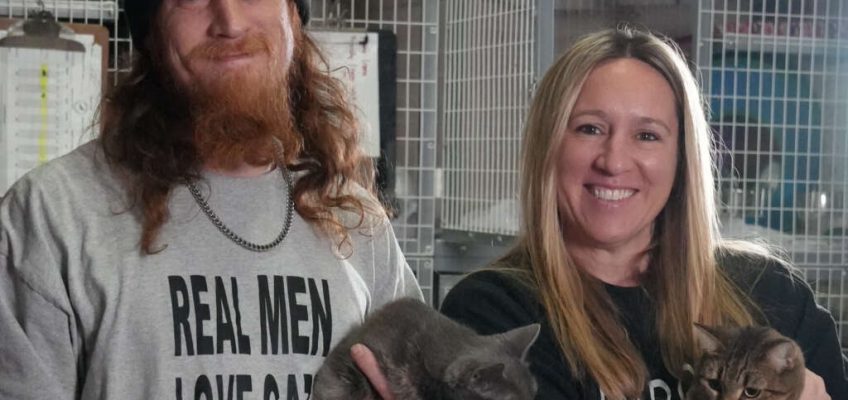“Small, volunteer-led, donor-dependent rescues like ours receive virtually zero assistance from local governments, which make no secret of the fact that they rely on rescues to address their stray animal populations.”
Puppy Kitty NYC staff. Photo by Meagan Eastman.
A recent USA Today article explored the frustration many animal lovers feel over strict pet adoption rules, some of whom characterized screening methods as invasive and likened the complexity of the process to applying for college or a new job.
It’s time to talk cold, hard truths about pet adoptions and the constraints small, volunteer-run rescue operations navigate to maximize permanent placements and minimize shelter returns.
It’s not about you.
While specific missions vary from rescue to rescue, the “clients” our community serves are the animals being placed in loving “forever” homes, reflecting the lifetime commitment responsible pet ownership requires.
If you’re asking to accept responsibility for the care and upkeep of another living, breathing creature, we’re going to ask questions that help us assess your ability to deliver on that promise because that’s what it is: a promise.
If you break that promise, no matter the reason, believe me when I tell you that we view it as a failure on our part for not ensuring that animal’s safety and well-being. Our exhaustive process, you see, focuses solely on the needs of our rescues and assumes that anyone seeking this level of responsibility shares that commitment.
At Puppy Kitty New York City Inc. (PKNYC) our mission is to save homeless, sick and dying animals, and each rescue represents a story of hope and compassion, reminding us that together we can make a profound difference in the lives of those who cannot speak for themselves.
Admittedly, hearing critics of stringent pet-adoption criteria characterize efforts such as accessibility of vet services or suitability of living arrangements as “militant” cuts deeply, but the truth is that rescue organizations and volunteers nationwide are, in fact, on the frontlines of a pet overpopulation crisis.
To paraphrase a PKNYC board member’s emailed response to the author of the USA Today piece, we’d love nothing more than to adopt out an animal to every person who applies, but our responsibility lies in finding our rescues stable, permanent homes.
There are applicants whose landlords won’t permit an animal, situations where we’ve discovered that the applicant has returned an animal to another rescue without adequate justification for surrender, applicants who aren’t getting good vet care for their current pets and even applicants who intend to allow a cat to wander New York City streets freely.
So, yes, there are denials, but the decisions are always rooted in ensuring the needs of each individual rescue are met.
Small, volunteer-led, donor-dependent rescues like ours receive virtually zero assistance from local governments, which make no secret of the fact that they rely on rescues to address their stray animal populations. In New York City alone that figure hovers currently around half a million stray and feral cats, meaning we must be masterful stewards of the return-on-investment our shoestring budget enables.
No one in this space wants to be viewed as a villain who’s passing judgment on an applicant’s “worthiness” to adopt a pet. We simply want to ensure that our rescues–especially those that are medically-fragile and/or special needs–have their needs met.
Meagan Licari is president of Puppy Kitty New York City Inc., a nonprofit, volunteer-based animal rescue in Queens serving all of New York City.
The post Opinion: Rescues Ask the Hard Questions Up Front to Minimize Revolving Doors at Animal Shelters appeared first on City Limits.


Leave a Reply